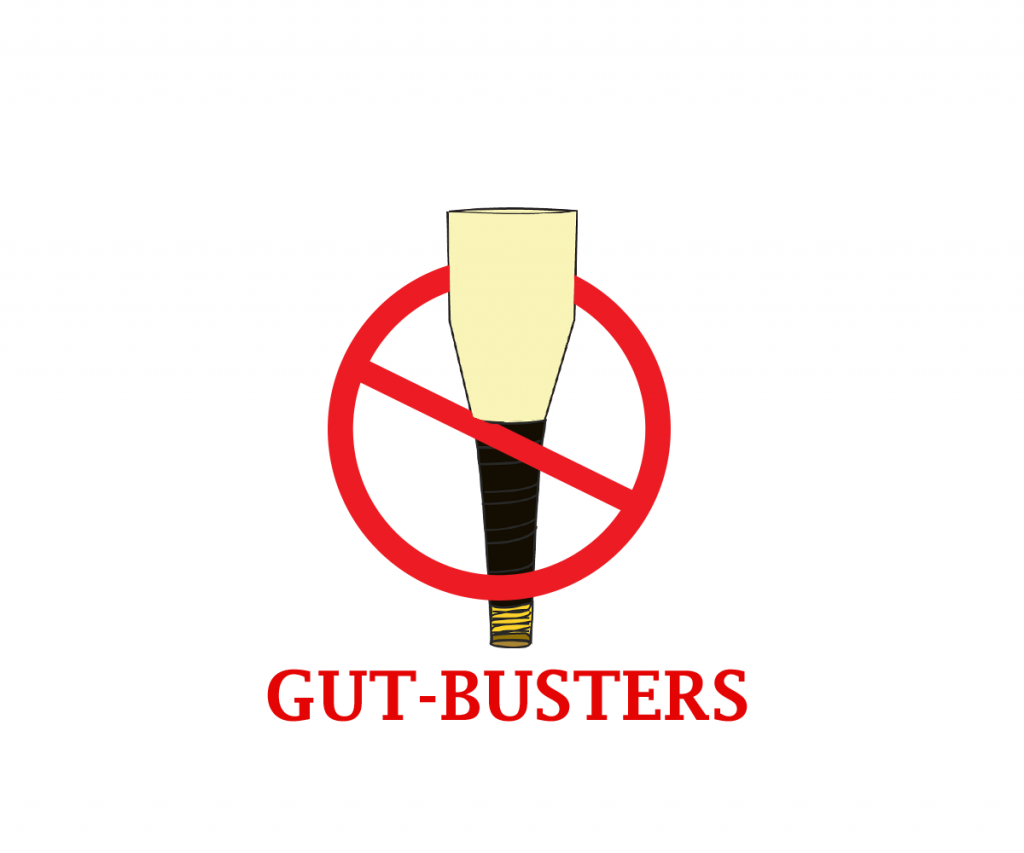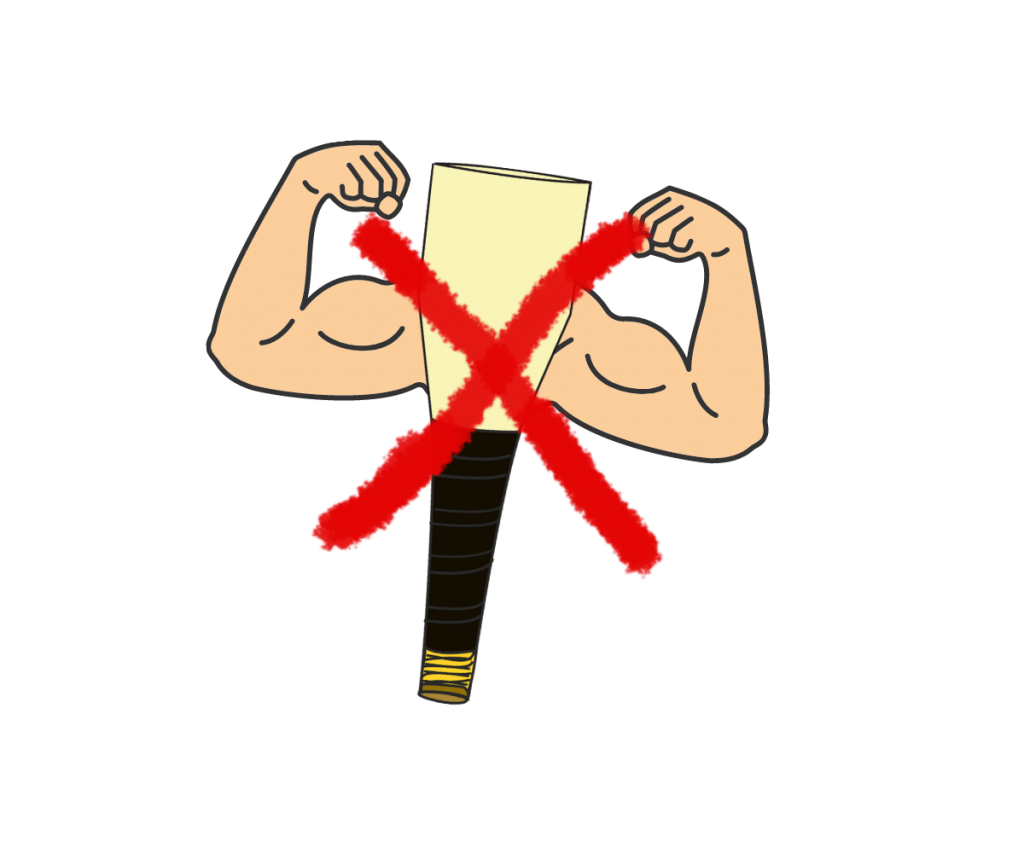Hard Reeds: Pros and Cons

To illustrate the fallacy that hard pipe chanter reeds are somehow desirable, I often ask students to lay out pros and cons.
We often "come up" in piping cultures that implicitly or explicitly coerce us into playing hard reeds, but if we sit down and think about it, the cons FAR outweigh the pros of playing a reed that's too strong for us.
The Pros
Let's start with the pros. Of course, there are a couple. Let's look at them:
- Stability. Probably because there's more physical material in a harder reed, they tend to be more stable than easier reeds. This means their tuning changes (slightly) less than easier reeds with changes in environment.
- Volume. Hard reeds produce more volume than easier reeds. But, ask yourself: in what situations do I actually WANT more volume? The bagpipes are already quite loud. Perhaps in a band situation more volume could be better, but if 6 out of 10 of the players in the band are playing significantly easier (quieter) reeds than the other 4, this can pose balance problems. To my mind, more volume is only actually a positive if it is well balanced across an entire pipe corps. Meanwhile, in a solo piping scenario, playing louder doesn't really help us much at all.
- Steadiness "Masking." Hard reeds tend to mask problems with steady blowing better than easy reeds. Dips and surges don't come across as much, and the tuning of some notes (like D's) tends not to change as much with changes in blowing.
- "Crack" - Harder reeds do seem to have a nice "crackle" to them when played that an easier reed doesn't have. Don't confuse this with richness though - easier reeds (probably because they're more flexible) tend to produce a more harmonic richness than harder reeds!
So these are the benefits of playing a hard reed. But now let's look at the downsides:
The Cons
- The Death Grip. Playing a hard reed causes our whole body to tense up, and clean fingerwork suddenly becomes impossible.
- Infringement on Focus. There are many things that deserve our focus when playing bagpipe music, but if all you can focus on is trying to keep your pipes going, none of the other things will be spared any attention.
- Additional Moisture. The more hot, moist air we crank through our instrument (even if it is perfectly maintained), the sooner condensation will form in our instrument! This shortens the time we can play before our bagpipe is soaked and untunable...
- Thin-ness of Tone (Usually). To produce a truly rich sound, we need to hit the "sweet spot" of our reed. But, if all we can do is (barely) keep the chanter going, this is going to be essentially impossible, resulting in thin, uninspiring tonal quality.
- Potential for Injury! How many pipers do you know who have developed hernias, esophagus conditions, and more from playing pipes? I have known many.
- Madness and Frustration. If your pipes are near-impossible to play physically, frustration and anger are natural byproducts. Is this why we wanted to learn the pipes? Not me!
- Exhaustion. If you can only play for 10 minutes before exhaustion sets in, how are we expecting to improve? An easy-to-play reed could offer us TRIPLE the playing time.
All of these downsides have a common theme. Playing a hard reed forces all of our energy and focus AWAY from playing music.
Think about it - why did we pick the the pipes in the first place? To play music right? And, in playing a hard reed we are shoving a stick right into the spokes of that goal.
Instead of joyfully exploring this great instrument and making steady improvement, believing that a hard reed "should" be played forces us to continually struggle, physically and mentally, until all of our enthusiasm is gone.
So Now What?

There's a good chance you're reading this and are realizing that you yourself are struggling with your instrument and that you want the struggle to end.
Well, at the Dojo we have a system for developing true confidence with your instrument. It's designed for beginners transitioning to the pipes but ALSO for intermediates that need a bagpipe "reboot." And, the system all distilled in an online course that you can begin digesting TODAY.
Click Here to Read About the "Transitioning to the Bagpipes" Course
I hope this course helps illustrate to you that, despite what you may think, despite what you may have heard, the best (happiest!!!) players play comfortable bagpipes (and that it's simple for you to do the same).
You could be moments away from your own breakthrough, where piping is suddenly a true joy because you're comfortable while you're playing.





Help!! I had a Medium G1 Platinum that I got in December 2020. About a month ago started making squeaking noises and become impossible to tame. Couldn't tune the pipes either. Drones off...
My instructor said I probably should get new drone reeds. So I did. Then I asked my instructor if he could give the ch reed a "poke" to see if it would improve the reed. He said no, get a new reed.
I got another G1 Medium from Tartantown. Put it on.... no good.
He put in a Chesney..... I couldn't even get it to make a sound unless I got a headache! He told me to play it for 5 minutes every day, no rubber band but let me shave it just a tad.
It's been over two weeks.... I still cannot hold steady pressure with it. It's killing me.
I feel like I went backwards to when I first got the pipes. I am very discouraged.
BTW I practice every day 1 to 1 1/2 hour. I have been trying to hold the sweet spot(around 20) but I am all over the place with the water level.
Help
Grazia
Hi Grazia, This is a perfect illustration of why you should NOT play hard reeds. Here's the hard truth.... your instructor was wrong. That's not to say they are wrong about everything, or that they are a bad teacher, etc., etc. It is a very common practice in bagpiping to "break in a hard reed" because "it's what everyone has to do" but you've just experienced why this is one of the worst ideas for a beginner to intermediate player. At this level you cannot afford to waste time breaking in a reed or fighting with an instrument, it's not a good use of your time. You need to be working on getting better, and above all, enjoying playing. No one, including your instructor wants to see you quit, but struggling - unnecessarily - with your pipes is one of the most frustrating and demoralising things. Many students quit because bagpiping it's just 'too' hard. But it doesn't have to be and it shouldn't be hard!!!!
Now, if you read the article above, and perhaps checked out our Transitioning to the Pipes Course, or chatted with one of our instructors then you might have already guessed the solution. I think you know the answer, probably before asking, except that you got conflicting advice from a peer of yours. You need an easier chanter reed. Plain and simple. Call your supplier back up and ask for easy reeds. Make sure if they aren't to your liking you can exchange them and then order 2 or 3 reeds. As soon as they arrive, you must, *must* test each and everyone. They all should be comfortable reeds that are the correct strength for you. If they all aren't exchange them until you have good reeds. Be exacting here and do not accept 'just okay' reeds.
How do you know if it's a good strength for you and not too easy or too hard? We use what we call the "Scotland the Brave Test". AKA Mouth blow the chanter reed in the chanter and play the first line of STB, or a similar 4/4 at a normal tempo. On a single breath you should be able to get to the end of the line (bar 4). If you make it too much further (bar 6), it's too easy, if you run out of air in bar 2, it's tooo hard. etc. If you run out of steam a beat or two into bar 4, it's just perfect!
In any case, I can't recommend our Transitioning to the Pipes course for you enough. It will change your piping life for the better. It's time you take control of your bagpipe. Get it set up properly, easily, and efficiently. No instructor can do this for you as well as you can do it for yourself. No one has more interest in the ease and efficiency of your pipes than you!
So there's the hard truth and the easy solution. Get started and let us know if you have any questions along the way! Cheers, Carl
Thank You Carl. What a relief.... I can start playing without frustration again